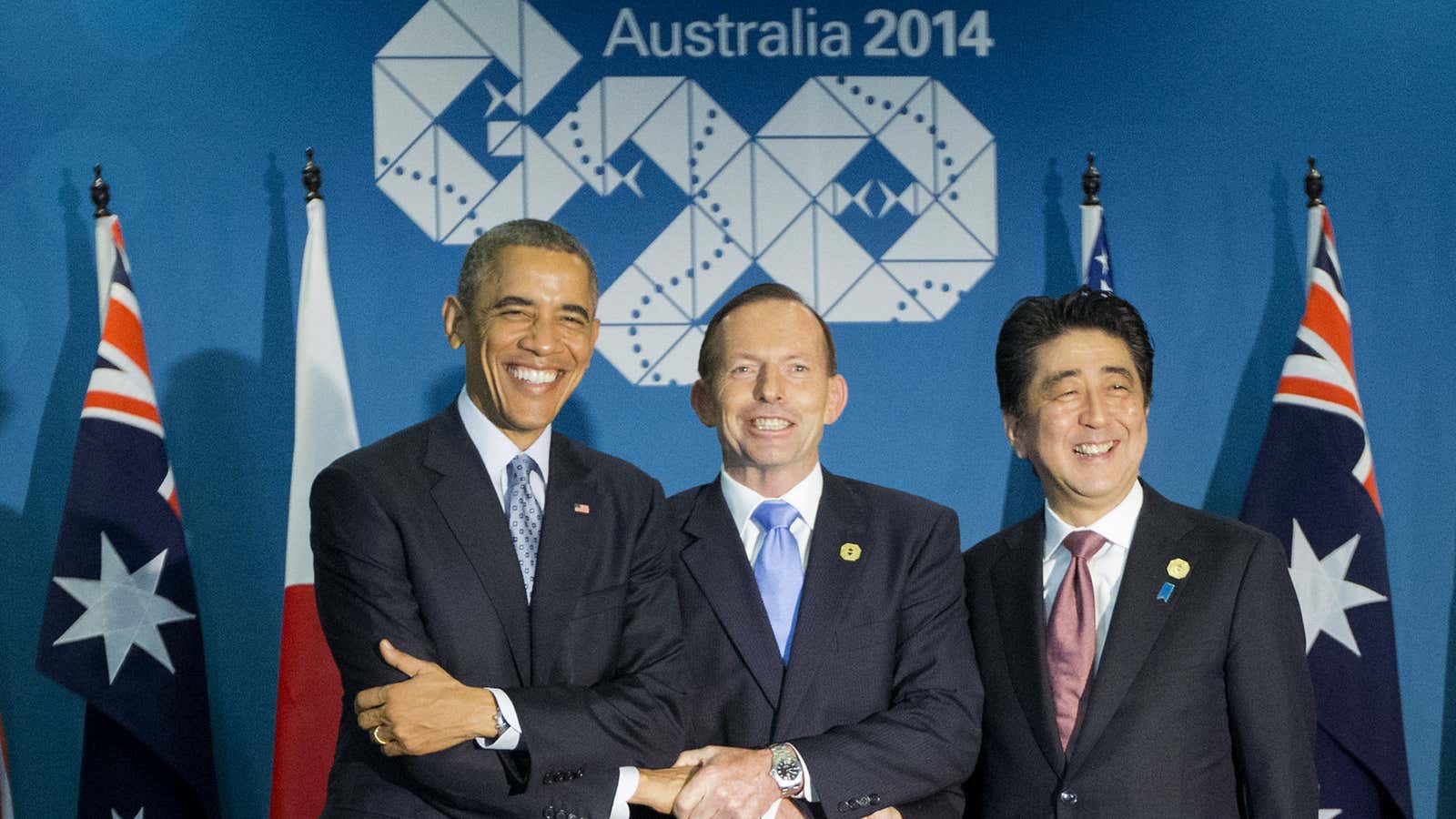The pattern of illegal money flowing from the developing world to the West has been well-established.
Funds are stolen by kleptocrat X in developing country Y. They’re laundered through Western banks and law firms, ending up in a tax haven (often a UK crown dependency or overseas territory), and thence to London, Geneva, or New York, where they buy a lush house and new life for kleptocrat X. For country Y, however, the money is gone.
Global leaders have been setting up structures to fight this system, spurred on by an appeal from the G20 in 2014. The headline effort, made by the OECD, the rich-country club, is the Common Reporting Standard (CRS)—a structure for countries to automatically exchange information about bank accounts held by foreigners. So, Switzerland hands over data every year to Canada about Canadians with Swiss bank accounts, and vice versa. That way, both countries have more information with which to track down unpaid taxes.
Sounds great, right?
In theory, yes. But there’s a gaping problem with the system, according to a new report by two NGOs, the Financial Transparency Coalition and Christian Aid: it’s heavily weighted to help out rich countries. More than 100 jurisdictions are signed up, but most of the ones actually exchanging data are high-income (according to World Bank classifications), while none of the world’s poorest countries are yet doing so.
Transparency NGOs say that’s partly because countries can choose which other countries to share data with. Switzerland has agreed to let only nine countries peek into its accounts under the CRS, according to the report, which covers up to July 2017. Unsurprisingly, all those nine countries are rich. (Switzerland also gives EU countries access under a separate mechanism.)
The OECD, in a statement sent to Quartz, denied that rich countries can pick and choose. The CRS, it says, commits countries to share data “with all those that are interested in receiving information and that meet the expected standard on confidentiality and the proper use of data.” But in practice, says the Financial Transparency Coalition, they can choose (pdf, pp. 7-8), because both parties must agree to an information exchange. As evidence, it notes that Brazil, for instance, hasn’t set up a data-sharing agreement with Switzerland but has done so all over Europe, so it’s not a problem of inadequate confidentiality standards.
Making data sharing the preserve of wealthy nations is a problem because the global offshore system does much more harm to poor countries than to rich ones. In the Middle East and Africa nearly 33% of household wealth was held abroad in 2012, according to the OECD (pdf, p.9). For Russia, the amount stashed offshore is likely equal to the country’s entire domestic household wealth, according to superstar economist Thomas Piketty. By contrast, the global average is just 6%, the 2012 OECD report states.
So, the upshot to this inventive new system is that rich countries have a boatload of new data on where they can track down missing tax revenue, but almost nothing has changed for poor ones that need the revenue, and the data, far more.
The requirement to share data reciprocally makes sense for rich countries but not for poor ones, says Christian Freymeyer, one of the report’s authors. “Malawian citizens might be hiding money in the UK but no UK citizens are going to be hiding money in Malawi,” he says. Since Malawi has to reciprocate with data that the UK doesn’t really need, it can’t stretch its less robust institutions to gather all that information.
Freymeyer has a solution: a non-reciprocity arrangement, in which less wealthy countries can receive data from rich ones while taking a couple of years to gain the expertise to collect that data at home. Otherwise, the only way they can get information on money stashed abroad is to specifically request it—meaning they have to find out it’s there in the first place. ”It’s very timely and cost prohibitive,” says Freymeyer. “The beauty of the global exchange of the CRS is that it’s already pre-agreed to and automatic, so the information just comes.”
The OECD says that non-reciprocity is already open to all countries, but it has to be agreed on by both partners. That doesn’t sound like “real non-reciprocity,” Freymeyer says. Instead, he argues, the system should be revamped to encourage poorer countries to come on board with the promise of helpful data from the outset.
